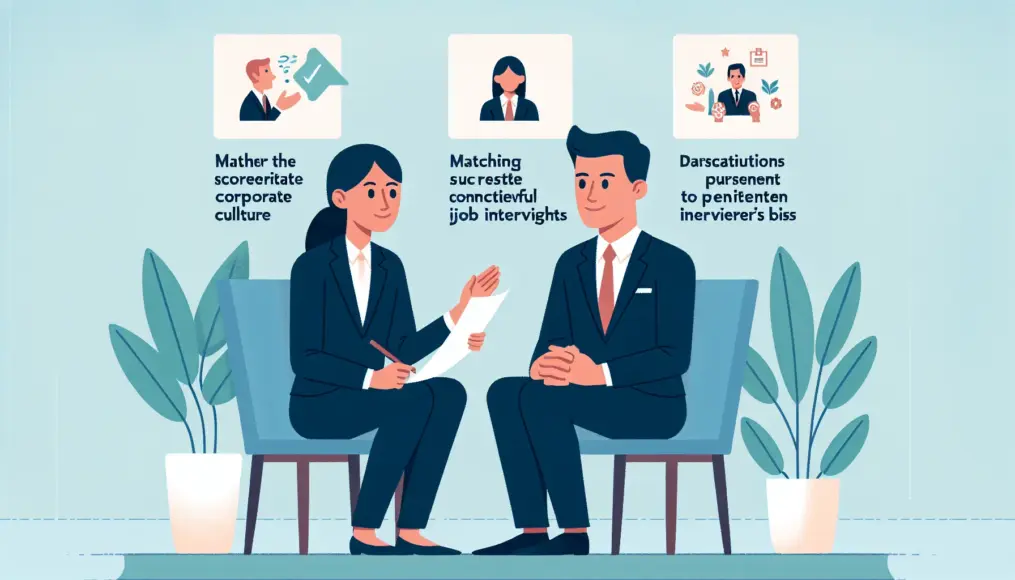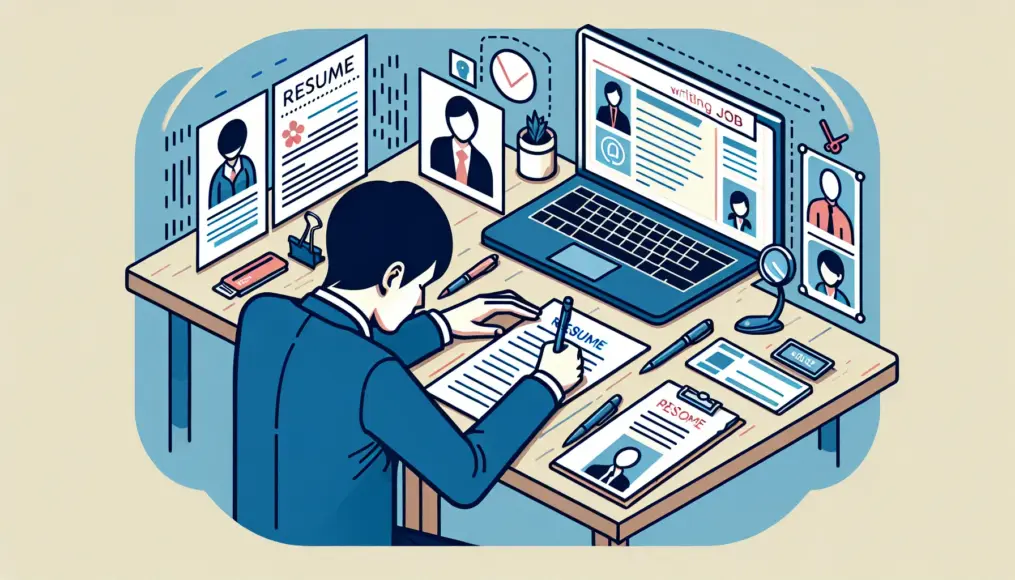As you approach your final interview, achieving success in this crucial step is essential. Understanding the types of questions you might face can help you enter the interview room with confidence. In this article, we’ll explore common questions asked during final interviews, along with effective ways to respond and tips for preparation.
By grasping what interviewers are looking for and the intentions behind their questions, you can tailor your responses to make a stronger impression. With the right preparation, you’ll be ready to showcase your best self on the big day.
Don’t underestimate the power of thorough preparation and a positive mindset. These elements are vital for your success in the interview. Let’s dive into strategies to help you ace your final interview.
- Understand the intent behind common final interview questions
- Master effective response techniques to highlight your strengths
- Tips for easing nerves and presenting yourself well on the day
Common Questions Asked in Final Interviews
The final interview is a crucial step in your career journey. At this stage, companies will often ask questions that help them assess how well you fit their desired candidate profile. Understanding the types of questions interviewers might ask, as well as how to respond effectively, is key to your success.
Behind each question lies the interviewer’s intent and the company culture. Therefore, it’s important not just to answer the questions, but to also consider why they are being asked as you prepare. Let’s delve into some commonly asked questions in final interviews and explore how to grasp the underlying intentions of interviewers.
Grasping the Interviewer’s Intent
Interviewers ask questions to determine how well you align with the company. They are particularly interested in your values and your approach to work. For instance, when asked, “What are your strengths?” the interviewer is looking to gauge your self-awareness and ability to promote yourself. It’s essential to not only provide an answer but to also showcase how your strengths align with what the company is looking for.
Furthermore, responses that include past experiences or specific anecdotes are often sought after. This allows you to communicate your achievements and personality more concretely, so it’s crucial to be well-prepared for this.
- Interviewers ask questions to assess fit
- Self-awareness and self-promotion are key
- Specific answers that include past experiences are important
Understanding the Context Behind the Questions
Every question has a backdrop reflecting the challenges the company faces and the skills they seek. For example, in a company that values teamwork, you might hear, “What challenges did you face while working in a team?” This question aims to evaluate your collaboration skills and problem-solving abilities.
Similarly, growth-oriented companies frequently ask, “How do you envision your growth moving forward?” This question is intended to uncover your vision and ambition. By understanding the context behind the questions, you can express your experiences and thoughts more accurately.
For those reading this article, gaining a deeper understanding of the intent behind interview questions will help you respond effectively. If you’re particularly interested in mastering the art of reverse questions during the final interview, be sure to check out this article on “Effective Reverse Question Techniques to Stand Out in Final Interviews.” It provides valuable insights on how to leave a strong impression on interviewers.
- Questions reflect the skills that companies are looking for
- Questions may assess teamwork and collaboration skills
- Understanding a company’s growth mindset helps you respond appropriately
Mastering Effective Response Techniques
In final interviews, you’ll encounter questions that dive deep into your strengths and experiences. Therefore, preparing to answer these questions effectively is crucial. By showcasing your strengths and incorporating specific anecdotes, you can leave a lasting impression on your interviewer. This section will explore how to express yourself and the importance of using concrete examples.
Interviewers are not just looking for straightforward answers; they want to gauge your personality and thought process through your responses. That’s why it’s essential to organize your strengths ahead of time and consider which examples to use. This preparation will enable you to confidently present yourself during the interview.
Showcasing Your Strengths
Effectively highlighting your strengths is directly linked to your success in the final interview. When discussing your strengths, it’s important to do more than simply say, “I excel at this.” You should explain how your strengths can be beneficial in a specific context. For instance, if you’re good at teamwork, it would be helpful to describe how you contributed to a past project.
Additionally, using concrete anecdotes to support your strengths can add credibility to your claims. Relating your experiences in a relevant way will lead to a deeper understanding from the interviewer.
- Clearly communicate your strengths
- Explain how your strengths can be advantageous
- Use specific anecdotes for added persuasiveness
The Power of Specific Examples
Using specific examples is an effective way to convey your experiences and skills more vividly. Interviewers want to know what actions you took in real-life situations. Therefore, it’s essential to mention particular scenarios or projects and discuss how you addressed challenges.
For example, stating, “In my previous job, I was involved in a project that increased sales by 20%” provides concrete numbers and results that clarify your capabilities. Furthermore, discussing your role in that project and how collaboration with team members led to success will leave a strong impression on the interviewer.
- Use examples to convey your experiences
- Increase persuasiveness by providing numbers and results
- Emphasize teamwork and collaboration
Key Points for Preparing for the Final Interview
Preparing for the final interview is a crucial step toward success. At this stage, it’s important to deepen your understanding of the company and effectively showcase your strengths. Particularly, researching the company and conducting mock interviews are essential elements that will help you approach the interview day with confidence. In this section, we’ll go into detail about these key points.
By researching the company, you can grasp its culture and the type of talent it seeks, allowing you to think about how you can contribute. Additionally, practicing through mock interviews will enable you to respond smoothly to real questions. Through this preparation, you’ll be able to enter the final interview with confidence.
The Importance of Company Research
Company research forms the foundation for your preparation for the final interview. By understanding the industry, competitors, and the company’s management philosophy and vision, your conversations with interviewers will flow more smoothly. Specifically, when you want to highlight your experiences and strengths in alignment with what the company is looking for, research plays a significant role.
To start, it’s essential to check the company’s official website and news releases to stay updated on the latest information. Understanding the company’s culture and values also helps you envision yourself working there, which can leave a positive impression on the interviewers, making you seem like a good fit for the organization.
- Understand the company’s industry and competitors
- Grasp the management philosophy and vision
- Align your experiences with the company’s desired talent profile
Practicing with Mock Interviews
Mock interviews are an incredibly effective way to prepare for the actual interview. This practice allows you to answer real questions while experiencing a sense of tension similar to what you’ll feel on the day of the interview. Furthermore, receiving feedback from others can help you identify and improve on your weaknesses.
For mock interviews, it’s a good idea to ask friends or family to play the role of the interviewer. By anticipating actual questions and formulating your answers, you’ll be able to respond more naturally. Additionally, recording your practice sessions can help you evaluate your speaking style and expressions, allowing you to spot areas for improvement. This preparation will help you approach the final interview with confidence.
- Practice with mock interviews to experience tension
- Improve yourself by receiving feedback
- Use recordings to check your speaking style
Mindset and Tips for the Interview Day
As the final selection day approaches, many of you might feel a mix of nerves and anxiety. However, by preparing your mindset and understanding the key points for the day, you can navigate the interview process more smoothly. In this section, we’ll discuss ways to alleviate your tension, as well as proper attire and etiquette for the big day.
To ease your nerves, it’s essential to focus on preparation and your mental approach. Since first impressions are crucial, paying attention to your attire and manners is equally important. Keeping these factors in mind will help you approach your final interview with confidence.
Tips to Alleviate Nervousness
There are several techniques that can help reduce your anxiety. First off, deep breathing can be incredibly effective. Taking a few moments to breathe deeply before your interview can help you relax. Additionally, positive self-affirmations can also be beneficial. Telling yourself, “I can do this,” can significantly prepare your mind.
Moreover, conducting mock interviews ahead of time can help you acclimate to the interview environment. Practicing in a tense setting simulates the real experience, allowing you to walk into the actual interview feeling more self-assured.
- Take deep breaths to relax
- Use positive self-affirmations
- Get comfortable with mock interviews
Attire and Etiquette for the Day
Your outfit and manners on the day of the interview significantly influence the first impression you make. It’s important to choose attire that aligns with the company culture and industry standards. While a business suit is generally a safe choice, some companies may allow more casual attire, so it’s wise to do your research beforehand.
Additionally, pay close attention to your manners. Make sure to greet the interviewer with a firm handshake and a respectful demeanor. Even while waiting for your interview to begin, it’s important to refrain from using your smartphone and to be considerate of your surroundings.
- Choose attire that fits the company culture
- Practice polite greetings
- Be mindful of your behavior while waiting
Conclusion
During the final interview stage, understanding the questions posed by the interviewer and their underlying intentions is crucial. To effectively showcase your strengths and experiences, thorough preparation is essential. Engaging in company research and conducting mock interviews can help you approach the actual interview with confidence. Additionally, being mindful of techniques to ease your nerves, as well as your attire and etiquette on the day of the interview, can create a positive first impression and lead to a successful outcome.
By keeping these key points in mind, you’ll increase your chances of success in the final selection process. Trust in yourself and continue your preparation.
- Understand the intent behind the interviewer’s questions and showcase yourself effectively
- Prepare through company research and mock interviews
- Manage your nerves and pay attention to your outfit and etiquette on the interview day
Your preparation for success is a significant step toward transforming your future. We encourage you to use this article as a guide as you gear up for your final interview. If you have any comments or questions, feel free to reach out!



Comment